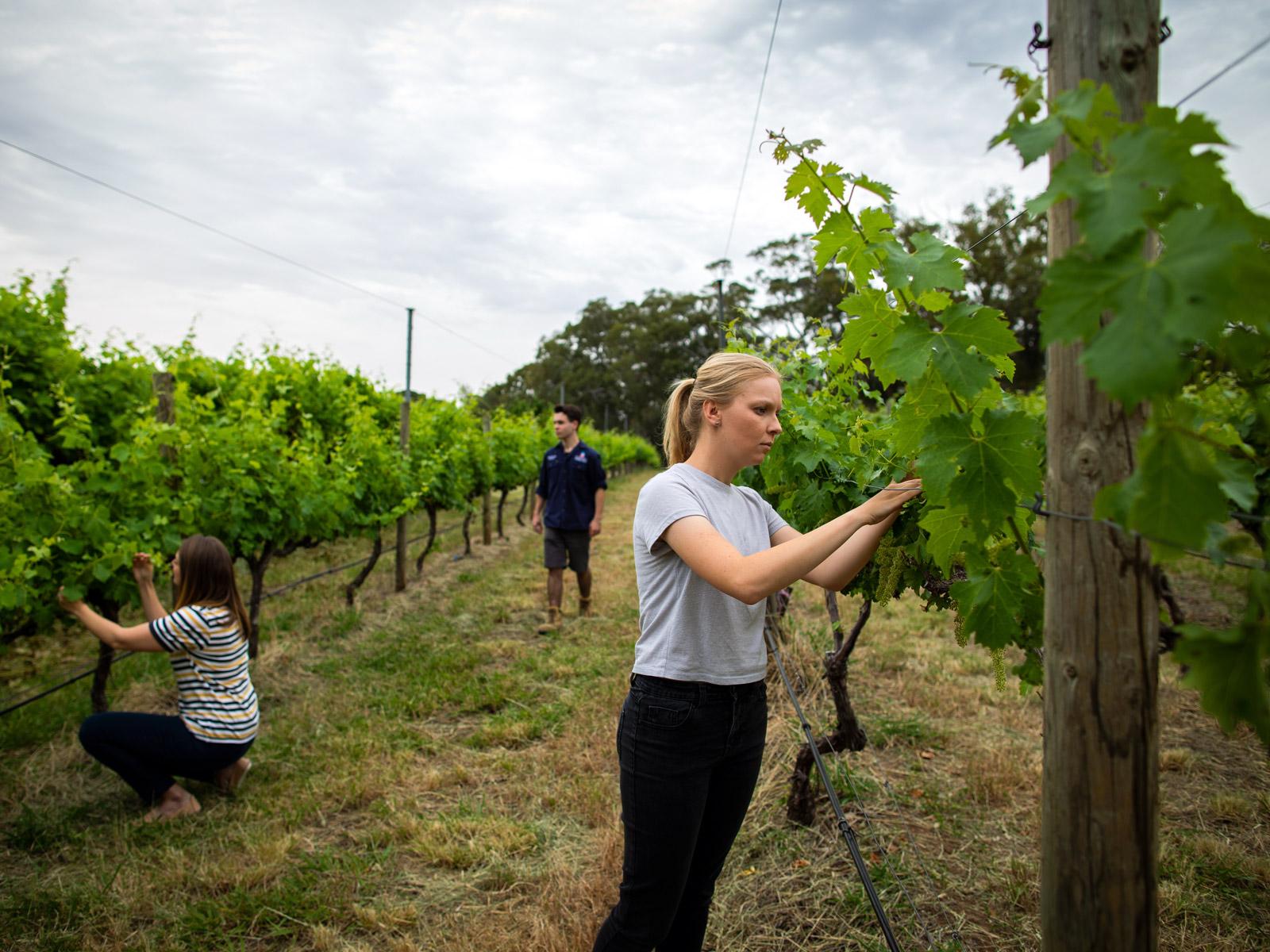Where does the acid in wine come from?
Can you help find the missing link in grape berry biochemistry?
Grape berries are uniquely suited for winemaking not because they contain a lot of fermentable sugars, which is pretty much the case for most fruits, but due to the presence of natural acidity. Unlike almost all other fruits, grapes contain tartaric acid, and so it could be said that without tartaric acid there would be no wine.
Surprisingly, little is known about the pathways and mechanisms that control the synthesis of this simple four-carbon dicarboxylic acid, and there is much that remains to be discovered.

The wine industry here and around the world has been significantly affected by climate change, which is altering the composition of grapes and the rate at which berries develop. In both cases this leads to less-than-ideal outcomes for growers, winemakers and consumers.
Acidity too is affected by climate change: malic acid, which accumulates alongside tartaric acid as the berries develop, is almost completely broken down as berries ripen; tartaric acid remains unaffected however and is therefore playing an increasingly important role in determining the suitability of grapes for specific wines.
Our earlier work identified and partly characterised two of the genes and enzymes believed to be involved in the synthesis of tartaric acid.
We are looking for an honours student to continue this research with biochemical and molecular experiments to further characterise the substrate specificity of the enzymes and to develop a novel experimental system for the elucidation of additional TA-synthesis enzymes.
The project work will be shared across labs at the University of Adelaide's Waite and North Terrace campuses, working with scientists in both the School of Agriculture, Food and Wine and the School of Biological Sciences.
The project is supported by a generous honours scholarship and research funding.
Research outcomes
The outcomes of the research will provide fundamental knowledge in grape berry biochemistry and will further assist long-term programs that seek to improve the suitability of grapevines for the continued production of high-quality fruit against a pattern of changing environmental conditions.
The techniques and skills to be learnt will include:
- Bacterial over-expression and purification of enzymes.
- Enzyme assays and kinetic analysis of substrate preference.
- Bioinformatics – use of genomic and gene expression databases.
- Plant growth and development of enzyme assays from crude and purified extracts.
- Critical analysis of research data, and scientific methodology and communication.

Supervisors
Associate Professor Chris Ford
Co-supervisors:
Dr John Bruning - Department of Molecular and Biomedical Science, School of Biological Sciences
Dr Keren Bindon - Australian Wine Research Institute
Research area: School of Agriculture, Food and Wine
Recommended honours enrolment: Honours in Plant Science or Honours in Wine Science
